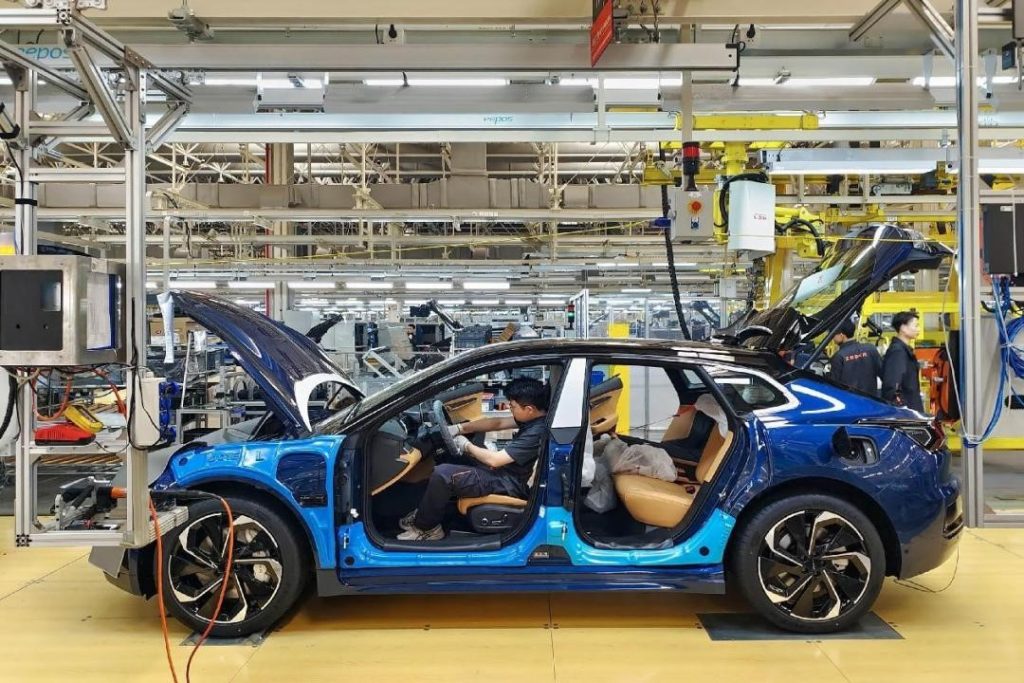China promotes integrated development of transportation, energy, roads and cloud services.

28.09.2023
Zhang Siyong
In the first half of 2023, China became the world’s largest producer, consumer and exporter of automobiles. New energy vehicles (NEVs) played a key role in achieving this remarkable result. The development of the NEV industry, the evolution of energy storage technologies, big data, cloud computing, smart and connected vehicles, and improvements in roads and other infrastructure create a promising future for the development of the “vehicle, energy, road and cloud” ecosystem.
The vehicle-energy-road-cloud ecosystem, which refers to smart vehicles, reliable energy, smart roads and real-time cloud services, is expected to make transportation smarter, greener and more convenient.
To achieve this goal, it is critical to create a reliable energy infrastructure for intelligent vehicles. In recent years, Chinese NEV manufacturers and EV battery charging and swapping businesses have been working closely to spur innovation in technology and business models. Together, they created the world’s largest charging and battery swapping network, laying a strong foundation for the popularization of NEVs.
However, the availability of charging and battery replacement services for NEV users remains a challenge. Relevant enterprises are accelerating technological developments to further improve infrastructure, alleviate EV owners’ range concerns and expand NEVs’ share of the automotive market.
The deep convergence of smart vehicles and reliable energy is also evident in the fact that NEVs act as both energy consumers and energy carriers, functioning as high-efficiency batteries. On the one hand, clean energy powers NEVs, which helps reduce carbon emissions and promotes green travel. On the other hand, the technological development of automotive energy batteries is driving the progress and reduction of battery costs, promoting the upgrading of the energy storage sector. In addition, an increasing number of NEVs serving as mobile energy storage devices are helping to eliminate the problems of instability and intermittency of alternative energy sources, especially solar and wind energy.
Thus, NEVs are both end users and intermediaries. Mutual integration and synergistic development of smart vehicles and reliable energy are driving the energy revolution.
To make NEVs smarter, smart roads and real-time cloud services are needed. According to statistics, 7 million intelligent and connected vehicles sold in China last year were equipped with assisted driving systems, an increase of 45.6% year-on-year. This share was 48% among NEVs. Autopilot systems are increasingly standard on NEVs.
In the past, vehicle autopilot performance was more dependent on configurations such as millimeter wave radars and laser rangefinders. In the future, autopilot systems will increasingly use external assistance systems. Building intelligent roads to achieve vehicle-road coordination not only expands the range of perception of individual vehicles, promoting the advancement of autonomous driving to a higher level, but also provides an effective and reliable basis for decision-making for traffic control and regulation, improving the efficiency of traffic management.
Real-time cloud services play an important role in achieving this. The creation of an integrated open public data platform and cloud-based management platform ensures high-performance access, real-time computing, application hosting, data openness, decision making and execution monitoring for on-board terminals, smart roadside infrastructure and third party connected vehicle platforms. All of this reliably provides data and computing power for autonomous driving, vehicle and road coordination, and intelligent transportation systems.
The development of the “car, energy, road and cloud” ecosystem is a systemic project. Currently, China is accelerating technological innovation and maintaining deep cooperation among enterprises, universities, research institutes and end users. Efforts are being made to introduce key technologies in areas such as automotive chips, operating systems and high-precision sensors. At the same time, the policy framework is constantly being improved, accompanied by relevant regulations and public services.
Without a doubt, with the coordinated efforts of all stakeholders, the high-quality development of the NEV industry will be effectively promoted, and transportation will become smarter and more convenient.
(Xiyong Zhang is a researcher at the Global Innovation and Knowledge Center for Sustainable Transport in China)
Source: “People’s Daily” online http://www.people.com.cn/
